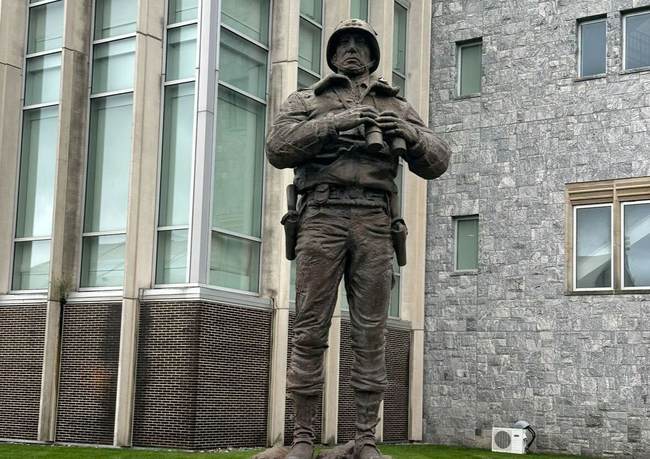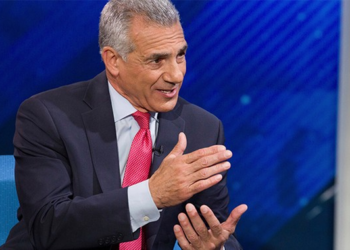
The young Army officer raced to the finish line, finishing third in the run out of all the Olympic athletes around him and fifth overall in the pentathlon competition. He didn’t walk away with a medal, but the whole world would one day know his name. That name was George S. Patton.
“George Smith Patton, Jr. was one of the greatest military generals ever produced in the United States,” the official Olympics website declares. While Patton competed at the 1912 Stockholm Olympics, he “was destined for far greater fame than he would achieve on the playing fields.” Indeed, old “Blood and Guts” was one of those men who leaps out of history in vivid color, larger-than-life and unforgettably unique.
Today is the anniversary of the 1885 birth of one of the greatest generals in American history, and by far the most effective U.S. general of World War II — George Patton. Unfortunately, he came to prominence as politics was replacing competence in standards for advancing generals, hence the shockingly inept and failure-plagued Bradley and Eisenhower were promoted over him. Patton was the only American general who terrified the Nazis, the man who managed to free more than twice as much of Normandy in a fraction of the time as all the other PC Allied generals put together. His brilliance ought to be more widely recognized, and his memory honored. He was the last general of his kind, and we have not seen his like again.
Related: How Armistice Day Became Veterans Day
But at Stockholm in 1912, the battles of two world wars and the glory of WWII were still years away for the recent West Point graduate. Patton would almost certainly have carried off a medal in the pentathlon at the Olympics had not the judges made an unfortunate decision in their judging. According to Christophe Prime in his brief biography of Patton for OREP Editions, several of Patton’s bullets during the pistol firing event were so precise as to pass through holes made in the targets by previous competitors. Instead of being impressed by his precision, the judges labeled these failed shots, which unfortunately put Patton too far behind to win a medal despite his even more impressive performance in the other events.
According to Prime, Patton defeated Europe’s leading fencer, placing him fourth in the fencing event. He was not an experienced swimmer, yet he still placed seventh in that event. He was sixth in cross-country riding — he was an avid horseman with his own private polo stable at home — and third in the 4,000-meter run. Altogether, he placed fifth in the Olympic pentathlon, and Prime says Patton placed first among non-Swedish competitors.
Patton’s performance was all the more outstanding because he was not a professional athlete and had scarcely any training in some of the events. He had been an athlete at West Point, it is true, and as noted above was personally an enthusiastic horseman, but the Olympics website says:
There is no record that George Patton ever again competed in organized sports after the Stockholm Olympics. Thus, he has one of the shortest athletic careers of any well-known American Olympian. His ‘career,’ as it were, consisting mostly of military training while at West Point, and then the 1912 Olympics. But George Smith Patton was destined for far greater fame than he would achieve on the playing fields.
Old “Blood and Guts” won a far greater prize even than an Olympic gold medal: the defeat of one of the most evil, genocidal regimes in world history.
Editor’s Note: Support and follow PJ Media’s exclusive coverage and historical analysis. Join PJ Media VIP and use promo code POTUS47 to get 74% off your membership before our Schumer Shutdown promotion ends.

















